Benjamin Van Bunderen Robberechts
Climate Justice For Rosa
OCTOBER 18, 2022
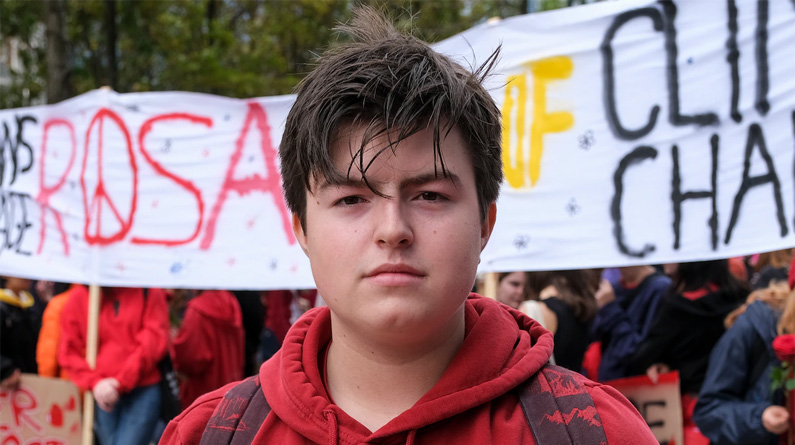
Ben is my friend, and I feel proud of him! A Belgian activist since the age of 11, where he was invited by the UN to speak in Geneva about sustainable development.
In September of 2024, the Belgian Government passed a law according to which the 15th of July is declared as the commemoration day for victims of climate change. Ben was the pioneer of this amendment.
At the same time, the play “For Rosa” ,portraying Rosa’s unique friendship and the impact of her tragic loss, was publicly acclaimed and recorded multiple sold outs in the theatre of Brussels.
Ben is a person that saw his world ending in an instant but stood up and decided to fight and bring positive change. Let his story be a reminder that sustainability derives from perseverance and personal fight.
Ben is always here for you.
Ben, I’ll start with the magic words: Climate change! You continue…
I want to say hello first, but mainly to thank you, Panagiotis, for interviewing me. We are used to traveling together and doing a lot of crazy things, but what’s happening right now is really serious, and I’m very excited that we’re doing this together.
It is my pleasure, Ben! You are only 16 years old, and you are already a well-known activist in your country and beyond. How did all this start?
I do not even know. We have known each other for a year, and every time we meet, it’s at conferences, and whenever we have the chance outside of those, as you said, we have fun!
Look, ever since I was very young, whenever I saw something wrong, I wanted to change it, and I participated in many types of activities. When I turned 11, I was invited to the UN to speak about one of the United Nations’ sustainable development goals and how we young people could contribute. I guess because of that, I can say I have been an activist for a long time.
In December 2021, my good friend Rosa died in the floods that occurred in Belgium, which is why I started the campaign “Climate Justice for Rosa.” It was a cry to say that climate change is here. Climate change is killing our friends; it will kill us too, so we must do everything we can to protect each other.
Ben, I have not dared to ask what exactly happened that night with Rosa, unfortunately, when you were together. But I Googled it and learned knows. I won’t ask now either. Let us leave it.
But tell me, in Belgium and the countries where you give speeches and raise awareness, do they really listen to what you say and feel motivated to act, or is there a kind of hypocrisy?
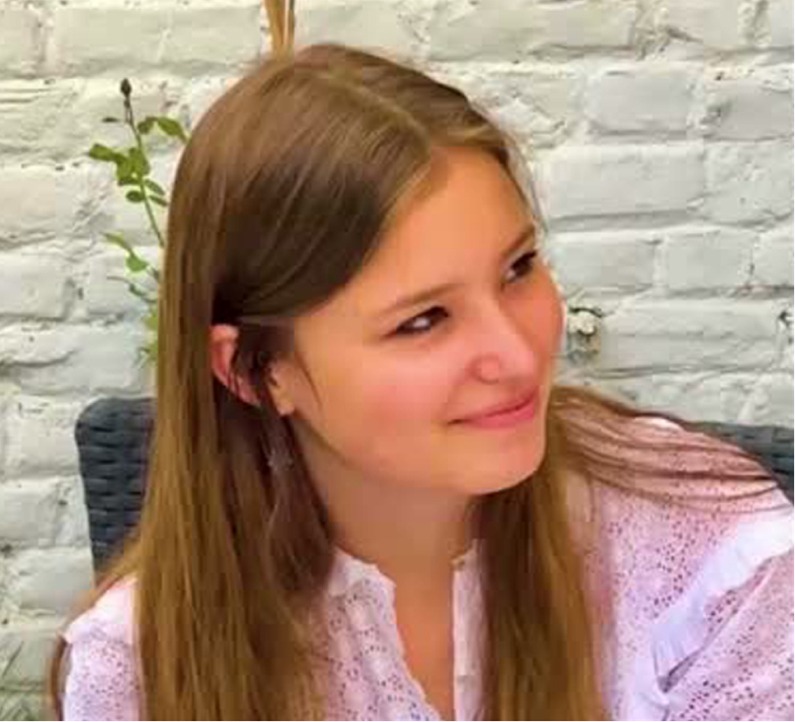
Oh! Yes. It is all hypocrisy. We do not talk seriously about climate change, especially here in Belgium, while 40 people lost their lives in the floods last year.
It is outrageous that politicians, like our Prime Minister, focus on distant countries like Pakistan when discussing climate change. Thousands died there or were forced to relocate due to the floods caused by it.
But no one talks about the impact it has on Belgium or Europe. A good friend of mine, a writer—very smart guy—told me it’s difficult for them to be specific since they’re partly responsible. That’s why they don’t talk about Belgium. And that’s also why I try to speak up. They need to take action to coordinate all of us to prevent disaster.
Politicians are born ‘disconnected,’ but they are destroying our future, which they themselves will not live to see, so it does not concern them.
I completely agree! Their inaction impacts an ever-increasing number of people. It’s easy for us to say, “Oh yes, it’s happening over there, it’s really terrifying, but they have to solve it on their own.”
They don’t care about us. They just want our votes, their seats, and their salaries. It’s pure disappointment. But we keep going because the fight is also on our shoulders.
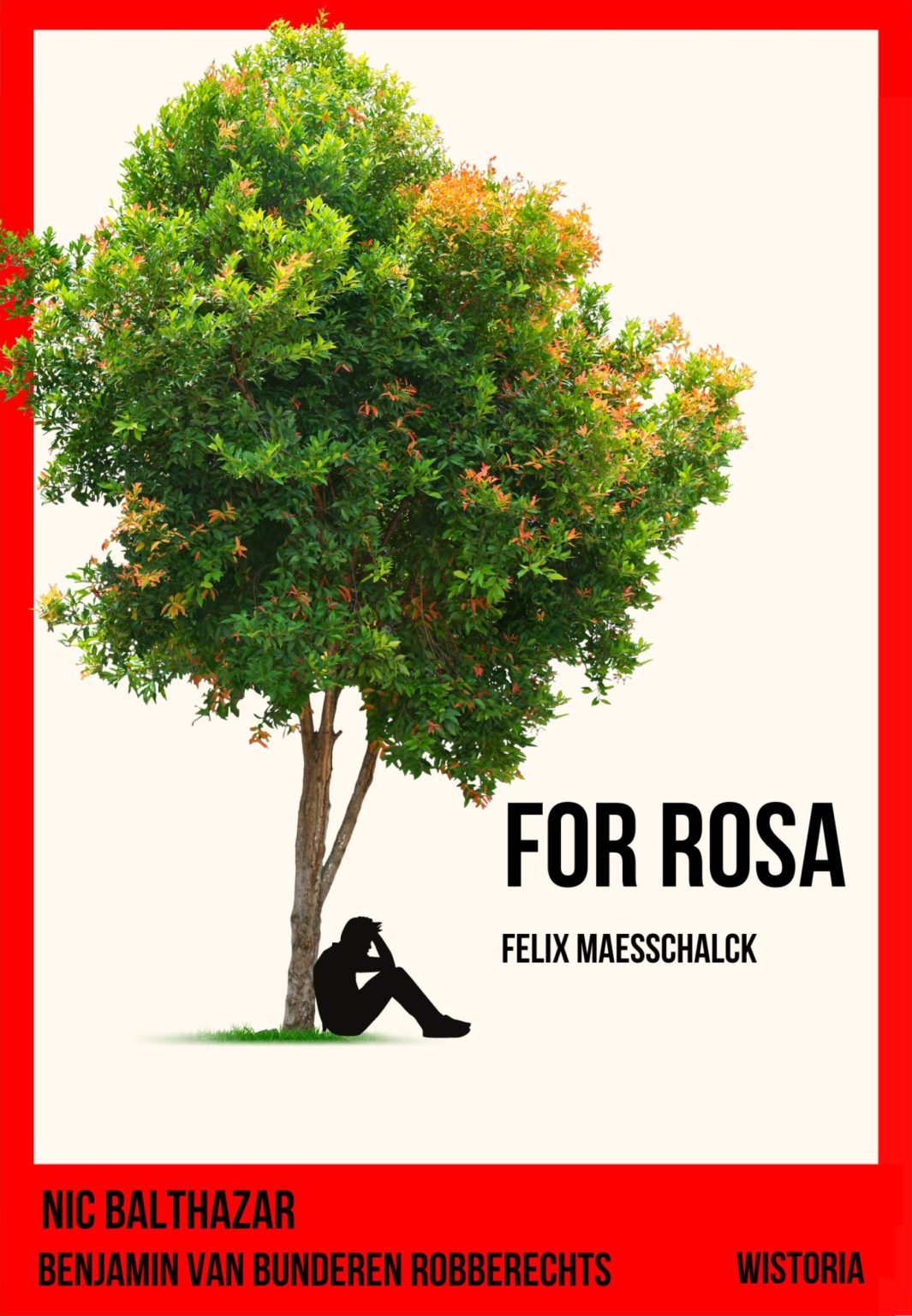
Have you seen changes since you started your campaign?
They are not immediately visible, but I want to contribute, even in a tiny way. I speak with politicians in my country and at the European Commission. Right now, we are working with Frans Timmermans, the European Commissioner for Green Deal, to make July 14th or 15th the European Day for Climate Victims. I had a very encouraging discussion with the wonderful Energy Minister of Belgium at COP27. It’s difficult to implement at a European level, but we will try for Belgium. I will probably speak in parliament (to people who don’t listen), but there’s no other way.
Are you optimistic, or is this just another theatrical performance?
We must be optimistic. Lying in bed crying accomplishes nothing. We need to get up in the morning and continue our fight. At least that’s what I do, and I don’t stop at just one action. I am also involved as an ambassador with Stop EcoSide, which has the support of serious politicians. We want to integrate the mass destruction of ecosystems into the legal framework related to international crimes.
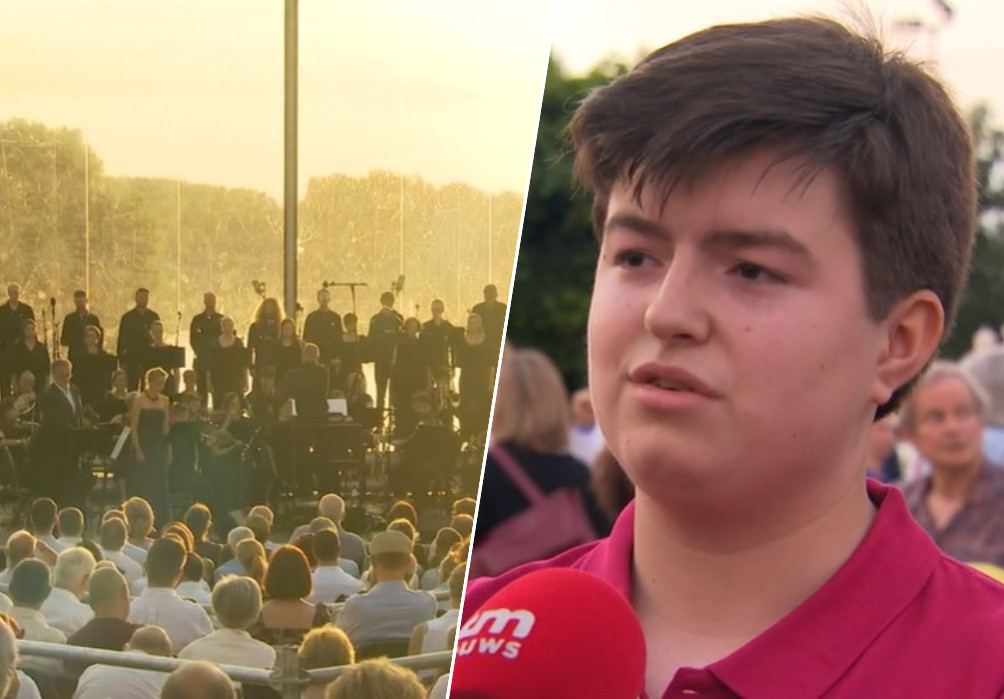
However, the most emotional fight you are undertaking is for Rosa. Recently, you prepared a documentary for Danish television.
“Yes, because she was Danish, and I am very happy that I contributed to its creation. It includes a speech of mine during a climate march. I was very satisfied because I managed to speak in front of 50,000 people. When I watched the video, I realized that I ended my speech by saying, ‘Thank you, Copenhagen!’ At that moment, I wanted to slap myself. What was I thinking? I sounded like I was having my rock star moment. Couldn’t I end it with a simple ‘thank you’? Anyway, I was excited and very emotional.”
I’m just as excited to hear it. You did this at the age of 15, Ben.
You are very supportive, and I appreciate it my friend.
Tell me now, have you received more support from younger or older people?
Younger people are all fighting together strongly. The same goes for the very elderly! They’re interested! Surprising, right?
In between, there’s a gap of stupid people. These are the ones in their working age who are solely absorbed in their jobs and personal lives (not everyone, of course, but most of them). This includes those who make decisions.
So, we need to convince these medieval minds to take action.
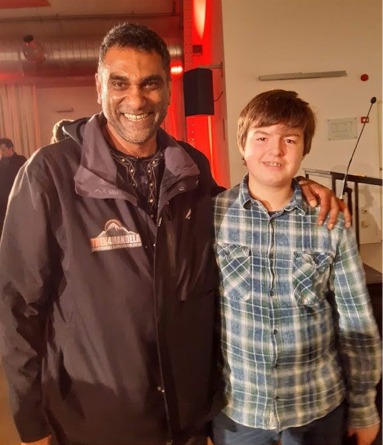
After they first put down their crowns…
Perfect! Right on the point you made, I have something to add. At COP 27, I asked the Belgian Prime Minister: ‘After what happened to Rosa and with those who lost their lives in the floods, what else are you waiting for to take action?’ He responded with something that I took very seriously. Something like: ‘We want to intervene, we really believe it, and we know we have to do it, but the general public is not ready for this.
Maybe we act in our next life, if we feel more ready.
Haha by the looks of it yes.
COP is the largest environmental conference in the world. What is the atmosphere like?
It was my first COP, held in Egypt, and there I heard people describing it as very unique and very large because around 40,000 people participated. I simply filled my days with beautiful conversations, but I didn’t take part in the negotiations. I made many new connections, mostly with European ministers. It was difficult to talk to everyone I wanted to, and I didn’t get the chance to connect meaningfully with some. I met many young activists. All this multiculturalism flooded me with ideas and opened windows for me.
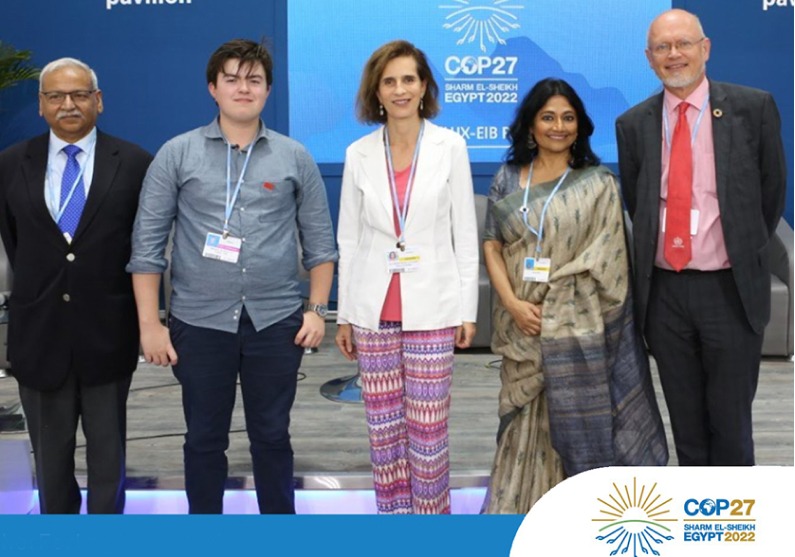
What is your assessment of the conference?
I was pleased with what I did there, but I am not satisfied with the outcome of the Summit. Some truly wanted to act, but most were unacceptable. Fortunately, they agreed on the compensation law, but they hardly said anything about maintaining the 1.5-degree goal. If they don’t reduce the carbon footprint, nothing changes. I was disappointed. They talked about laws, damages, and adaptation, but they did not admit responsibilities or acknowledge mistakes.
How are you treated now as an activist?
Right now, in Belgium, I am well known and that’s partly the reason that the Belgian Government gave me the honor of being invited in COP. It’s very hard to be part of this event and luckily, I was.
You are lucky you are Belgian, as it seems that in your country young people are given opportunities to partake in policy making processes.
I am aware of your luck as I wanted to join the COP as well, but I wasn’t given the opportunity.
But you were there, and rightly so as the fight you have put up to this day is incredible and has inspired so many young advocates to take action and protect our future.
Should we gather signatures to give you a Belgian nationality? “laughter”
Of those that disagree with your cause, what do you think that there perspective on the matter is?
They believe that climate change is a joke, like trolls.
But the trolling doesn’t seem to affect you.
Most of the time, I laugh. I’m not interested in those people. I’ve started to form a stereotype that includes them. They are the same people who don’t believe in Covid, are against vaccination, and support a bunch of conspiracy theories. I’m interested in those who are on the opposite side of them. Like you, . So yes, there’s no time to engage with them.
Any current plans?
Oh yes, yes! In March I will travel to Bangladesh to shoot a new documentary and, of course, to talk directly with the people affected by climate change. I am really looking forward to it.
You are an exciting and persistent person.! To finish off, can you make a prediction? Will we be victorious in the fight for climate?
I am optimistic.
I would like to say goodbye with a moto I have come up with. Whatever you do, Ben is always here for you. “laughter”
The story of Rosa and Ben as portrayed by “The Guardian”.
Here I will include parts of the article. Wed 3 Apr 2024
The life and death of Rosa Reichel: the brilliant girl who was swept away
Rosa Reichel was 15, from Denmark and Germany by way of New York, but her family lived in Brussels. Dyed red hair and black eyeliner and chunky silver necklaces. She tapped Benjamin on the shoulder and told him a dirty joke. Just like that, they were friends.
The girl Benjamin met that day laughed a lot: loudly, happily. If you gathered Rosa’s friends in a room and asked them to describe one thing about Rosa, without question it would be her laugh. If you gave them more words, her friends would say how much fun she was, but also how caring: how Rosa was always the person who noticed when people were feeling low and tried to cheer them up. They felt that she was someone you could rely on, someone who brightened any room she was in. She stood up for her friends and for causes she believed in. At first, she might have been a little shy around you, but when she opened up, she would share her humor, her values, herself. Benjamin was a little overwhelmed by her. “She was the greatest person I ever met,” he says.
Οn Wednesday 14 July,During their morning workshops, Benjamin and Rosa exchanged looks, as if to say: this is stupid. The teenagers played ping pong and grouched about the food. By the afternoon, they were getting restless. A few, including Rosa, decided to go for a run in the rain.“How was the run?” Benjamin asked when she returned. “Wet,” she said. There were no adults around, but other children were outside. It was raining, but it didn’t feel dangerous. Benjamin and Rosa went outside, stood on a bridge over the stream and watched the water. The ground was muddy. Rosa slipped. Benjamin caught her before she fell. “The last thing she said to me was: ‘Benjamin, what would I do without you?’”. Seconds later, the fields flooded with a terrifying rush of water. Rosa was dragged away. Benjamin jumped in after her. He caught her and grabbed at branches with his free arm. He remembers seeing his sandals float away, one after another. There was a fence pole sticking out of the bank. He lunged at it, still holding Rosa with his other arm. “But then a bigger wave came and she slipped out of my hands.”.
It took three days for rescuers to find Rosa’s body four miles downstream. Benjamin tried to be hopeful, to think that maybe she was sitting in a tree, but he knew in his heart that she was dead. “The water was a monster,” he says. For months, he barely left his bedroom. He tried going to school, but on his first day back someone asked him how his summer was and it broke him. He avoided looking at bodies of water. He felt that Rosa’s death was his fault. “I think maybe I was the one who said: ‘Let’s go outside.’ I didn’t rescue her,” says Benjamin, now 17, in a quiet voice.
He went over every memory he had of Rosa, their every interaction in the five days he had known her. How she said his aviator sunglasses made him look like Tom Cruise in Top Gun. How they joked that they were like husband and wife. How he taught her how to play Rock Around the Clock on his bass guitar. “Every time I thought of Rosa, I would be pulled into the river in my mind,” he says.
It didn’t take long for Benjamin to make the connection between Rosa’s death and the climate emergency. “ “He dreads interviews about Rosa, but he never turns them down, because he feels it’s important to tell her story. “I haven’t lost all hope yet,” he says. Benjamin hates it when journalists ask him if their relationship was romantic. “I don’t know,” he says flatly. “I don’t want to think about it too much, because I will badly emotionally hurt myself.”
It seems to me, meeting Benjamin, that two children fell into that stream on 14 July, but the one who survived was no longer a child.
We leave our pastries and walk to an alder tree planted in Brussels’ Ixelles district – Rosa’s tree.
Today, 7 January, would have been Rosa’s 18th birthday. Her childhood best friend, Freya Devlin, 18, and Rosa’s teenage cousins are busy preparing the tree for a memorial event that evening. Benjamin pulls out a box of chalk and begins drawing roses on the pavement. Rosa’s uncle Søren cleans litter away. “Ben is so good,” Søren says, watching him. “He’s so persistent, so stubborn in this important struggle.” The teenagers light fairy lights that flicker in the sub-zero breeze. “There’s so much love around her,” says Søren of his niece.
